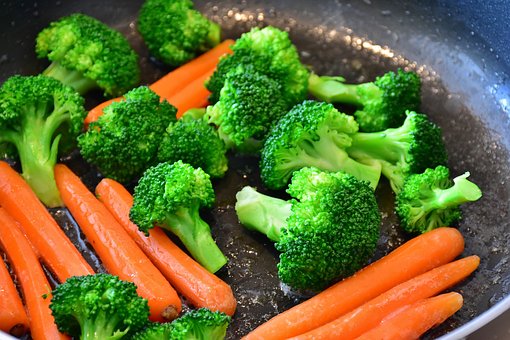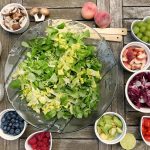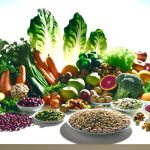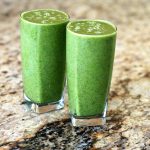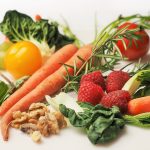What a person eats can have a big impact on their health. It is an essential aspect of a person’s life. But can food lower the chances of developing cancer?
Cancer is a disease that occurs when cells in the body divide abnormally, and spread to other tissues and organs. Most cancers are named from the area where it starts.
The Relationship Between Diet and Cancer
An overall healthy diet is key in preventing heart disease, diabetes and cancer. This diet should include plenty of colorful vegetables and fruits. Food can contain cancer-fighting properties. Unfortunately, no one food that will prevent cancer or stop it from progressing.
Studies on people have found that foods like berries, garlic, and broccoli have properties that may help prevent cancer.
These foods are antioxidant and phytochemical-rich, and low in calories, which may help reduce the risk of developing cancer. A diet that is healthy and can help prevent cancer is not much different from what many people would consider to be healthy food.
What are the foods to include in the diet to give the body a chance of staying clear from cancer?
Foods That Could Lower Your Risk Of Cancer
1. Garlic
Sulfur compounds in garlic can help fight cancer by neutralizing cancer-causing agents in the body. Garlic aids in DNA repair and also eliminates cancer cells. Garlic protects against stomach cancer by fighting the bacteria that can cause it.
To get the best out of garlic, it is recommended to peel and chop the cloves and let them sit for 15 to 20 minutes to allow the flavor to develop before cooking. The enzymes will be activated and sulfur-containing compounds will be released. These compounds help protect the plant during growth.
Garlic is a very powerful herb that can help protect against various infections. The main reason for its widespread use is that it can be incorporated into a large number of recipes.
2. Broccoli
Broccoli is a phytochemical powerhouse. A few cruciferous vegetables like broccoli, cabbage, cauliflower, and kale contain phytochemicals that produce protective enzymes. These enzymes are released when a person consumes raw vegetables.
The body also produces these enzymes in the intestine. The enzymes are activated when cooked, or raw broccoli passes through the intestine. When these enzymes are activated, they have the ability to break down cancer-causing chemicals in the body.
The beneficial effects of cruciferous vegetables against cancer has been linked to their sulfur-containing nutrients. Sulfur-containing nutrients in cruciferous vegetables are thought to be beneficial against cancer.
3. Tomatoes
Red vegetables are delicious and full of nutrients that help the body fight prostate cancer and heart disease.
The phytochemicals known as lycopene are what give tomatoes their red color. Lycopene is an antioxidant that helps protect cells from damage.
Lycopene is a compound found in tomatoes that give the fruit its vibrant red color. This compound is also linked to having anticancer properties. More research needs to be done, but there is evidence to suggest that consuming more lycopene and tomatoes could help lower your risk of prostate cancer.
A study of 17 different reviews found that an increased intake of raw tomatoes, cooked tomatoes, and lycopene were all associated with a lower risk of prostate cancer.
A different study of 47,365 people showed that increased intake of tomato sauce was associated with a lower prostate cancer risk.
You can increase your intake of tomatoes by adding them to your diet in various ways such as sandwiches, salads, sauces, or pasta dishes.
Even though these studies suggest that there is a correlation between eating tomatoes and a lower chance of developing prostate cancer, there are other potential factors that could be involved in this relationship.
The researchers think that lycopene could help stop cells from being damaged, which could cause cancer. Antioxidants are also known to improve the immune system. You can help your body fight cancer by consuming raw tomatoes.
4. Strawberries
Strawberries contain antioxidants that protect cells from damage. Though more research needs to be done, consuming strawberries may help protect against various heart diseases and memory decline.
Strawberries are also believed to cure cancer. A study found that consuming strawberry extract had an inhibitory effect on the growth of cancer cells.
These berries are packed with antioxidants, which gives them cancer-fighting properties. They increase the production of enzymes that can destroy cancer-causing substances.
Strawberries also contain flavonoids that act as antioxidants to scavenge for harmful enzymes that can cause damage to the DNA. Berries are known to be cancer-fighting foods. Including them in your diet can help decrease your chances of developing lung, mouth, throat, stomach, and ovarian cancers.
5. Carrots
Carrots are a readily available vegetable that contains essential nutrients that help protect against disease. Beta-carotene is an antioxidant found in carrots that helps to protect the cell membrane from damage caused by toxins. This process halts the growth of cancerous cells.
Cooked carrots supply more antioxidants compared to raw carrots. Although you will lose some nutrients by boiling or steaming carrots, they will taste sweeter this way.
Purium’s Carrot Juice Plus is a flavorful blend of organic carrots and soluble rice bran. Carrots are packed with nutrients that make them a valuable part of any healthy diet.
6. Spinach
Consuming dark leafy vegetables is good for overall health. Spinach explicitly contains an antioxidant called lutein. Lutein is good for the eyes. Carotenoids in spinach help remove unstable molecules that can cause free radical damage to the body.
7. Whole Grains
Whole grains, like wheat, deliver fiber to the body. If you want to decrease your chance of developing colorectal cancer, consume a diet with whole grains, vegetables and fruits.
Even though there is no clear evidence of how dietary fiber can help prevent cancer, it is essential for the body.
8. Beans
Beans contain a high amount of fiber. Several studies have shown that beans could reduce the risk of colorectal cancer. People who consume more cooked or dried beans have a decreased risk of tumor occurrence.
According to a new study, eating beans a few times a week can help increase your fiber intake and also lower your risk of developing various cancers.
9. Cinnamon
Cinnamon is known for its health benefits. The plant can help to lower blood sugar levels and also has anti-inflammatory properties.
Some animals that were studied by research scientists showed that cinnamon was able to help block the spread of cancer cells. Although more research is needed to determine how exactly cinnamon can affect human cancer development, previous studies have shown promising results.
10. Berries
Berries contain antioxidants that help protect cells from damage caused by free radicals Animal studies have found that berry extracts can inhibit various cancer biomarkers.
A number of scientific studies have determined that compounds found in various berries have the ability to inhibit the growth and spread of specific cancer cells within the body. These studies were conducted using both test tubes and animals.
11. Nuts
Nuts have been linked to restricting certain types of cancer. The Brazil nut, in particular, contains a high amount of selenium that can help protect the lungs against cancer.
Like almonds, walnuts can also help to decrease the growth rate of breast cancer by more than 70%. More studies on humans are needed to determine if nuts are the only factor responsible for reducing cancer risk or if there are other factors involved.
READ MORE: 7 Nuts For Your Heart
12. Turmeric
Turmeric is a spice known for its ability to improve one’s health. The main active ingredient is curcumin. It helps the body with anti-inflammatory effects and also helps to repair damage from oxidative stress.
Turmeric is also believed to have anti-cancer effects. Turmeric contains an ingredient that is known to kill cancer cells. Turmeric is used in Indian cuisine every day because it is an incredibly versatile spice. It can be used in both sweet and savory dishes, and its striking yellow color adds a beautiful visual element to any dish.
13. Olive Oil
One review that included 19 studies found that people who consumed the most olive oil had a lower risk of developing breast cancer and cancer of the digestive system than those with the lowest intake.
A different study found that cancer rates in 28 countries were lower in places where people ate more olive oil.
If you want to improve your health, an easy way to do it is to substitute olive oil for other oils in your diet. It can be used as a dressing on salads or cooked vegetables, or as a marinade for meat, fish, or poultry.
These studies show that there may be an association between olive oil intake and cancer, but there are likely other factors involved as well. Further research is necessary to examine the direct correlation between olive oil and cancer in humans.
Olive oil has been shown to possibly reduce the risk of certain types of cancer in several studies.
14. Citrus Fruits
Citrus fruits may help protect against cancers of the digestive and upper respiratory tracts, according to one large study.
The review found that a greater intake of citrus fruits was linked to a reduced risk of pancreatic cancer in nine different studies.
A review of 14 studies showed that a high intake, or at least three servings per week, of citrus fruit reduced the risk of stomach cancer by 28%.
The studies suggest that if you eat a few servings of citrus fruits each week, you may lower your risk of developing cancer.
Remember that there might be other factors involved that these studies don’t take into account. More research is needed to determine how citrus fruits specifically affect cancer development.
A higher intake of citrus fruits has been found to decrease the risk of certain types of cancers, including pancreatic and stomach cancers, as well as cancers of the digestive and upper respiratory tracts.
15. Flaxseed
In a study with 32 women who had breast cancer, it was found that those who ate a flaxseed muffin daily for over a month had a better outcome than those who ate a placebo. The study found that the flaxseed group had lower levels of markers associated with tumor growth, as well as an increase in cancer cell death.
A study of 161 men with prostate cancer found that flaxseed reduced the growth and spread of cancer cells. Other studies have found that flaxseed is high in fiber, which protects against colorectal cancer.
You can improve your health by adding one tablespoon of ground flaxseed to your diet each day. You can mix it into smoothies, sprinkle it over cereal and yogurt, or add it to your favorite baked goods.
Flaxseed may help to reduce the growth of breast and prostate cancers, according to some studies. Fiber intake is also thought to decrease the risk of colorectal cancer.
16. Fatty Fish
Some researchers believe that having a few fish items in your diet each week could reduce your chance of getting cancer. Digestive tract cancer was shown to be less likely in people who eat more fish.
A different study that looked at 478,040 adults found that eating more fish actually decreased the risk of developing colorectal cancer, while eating red and processed meats increased the risk.
Some types of fish, including salmon, mackerel and anchovies, contain nutrients that may help lower the risk of cancer. These nutrients include vitamin D and omega-3 fatty acids.
For instance, maintaining healthy levels of vitamin D is linked with cancer prevention and a lower risk of developing cancer. Omega-3 fatty acids are also believed to prevent the onset of the disease.
To get the most benefit from omega-3 fatty acids and vitamin D, try to eat two servings of fatty fish per week.
Although some evidence suggests that eating fatty fish may help to lower the risk of cancer, more research is needed to confirm this.
Fish consumption may decrease the risk of cancer. Fatty fish contains nutrients that may protect against cancer, including vitamin D and omega-3 fatty acids.
Conclusion
Your diet can greatly affect your cancer risk.
Although there are many foods that have the potential to reduce the spread and growth of cancer cells, research is limited. Further research is needed to ascertain how these foods may have a direct impact on cancer growth in human beings.
A healthy diet consisting of whole foods, coupled with a healthy lifestyle, is likely to improve your overall health.
READ MORE: Eat 7 Portions Of Fruits and Veg A Day And Beat Cancer – Studies At University College London Say

